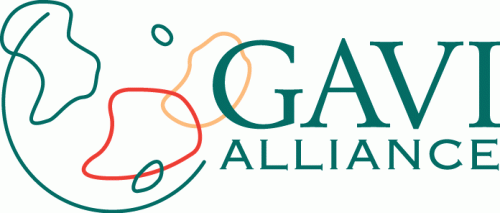
https://www.gavi.org/news/media-room/gavi-helps-immunise-65-million-chil...
Geneva, 27 July 2020 – Lower-income nations are catching up with wealthier countries in basic vaccine coverage, according to a new Gavi analysis of the WHO/UNICEF Estimates of National Immunization Coverage (WUENIC).
Roughly 65 million children in the world’s poorest countries received basic diphtheria, tetanus and pertussis (DTP3) vaccinations with support from Gavi in 2019, one million more than in 2018. This resulted in an increase in coverage from 80% in 2018, to 81%. Global vaccine coverage remained flat, at 85%.
When Gavi was created in 2000, lower-income countries averaged vaccine coverage of 59%, with middle-income countries on 88%. Now that gap has shrunk to just ten percent, with Gavi-supported countries on 81% and non-Gavi supported middle-income countries on 91%.
Gavi-supported countries also increased coverage of newer vaccines, such as those that tackle rotavirus, which causes deadly diarrhoea in infants, pneumococcal, which is the leading cause of severe pneumonia worldwide, and Haemophilus influenza type B (Hib), a deadly bacteria responsible for severe pneumonia, meningitis and other invasive diseases in children.
Coverage for rotavirus and pneumococcal vaccines remains higher on average in the 68 Gavi-supported countries than the global average. Coverage of HPV vaccine, which protects against the leading cause of cervical cancer and has been introduced in a limited number of countries so far, has also increased to 7% in Gavi-supported countries.
The number of children not receiving any basic DTP vaccines whatsoever declined to 10.6 million, a drop of nearly 1.7 million since 2015. Equity and the need to reach these ‘zero-dose’ children remain two of Gavi’s key priorities for its next five-year period. Research from Imperial College London underlines the disproportionate impact COVID-19 could have on disadvantaged communities in low-income countries, making this target even more urgent in the wake of the pandemic.
“More children are now being protected against more diseases than at any point in human history, with child mortality also dropping to historic lows,” said Dr Seth Berkley, CEO of Gavi, the Vaccine Alliance. “This is real progress, the result of decades of hard work by hundreds of thousands of vaccinators, health workers and staff from across the Vaccine Alliance. COVID-19 now poses a threat to this progress, which is why we are working round the clock to ensure immunisation programmes continue despite the pandemic, while redoubling our efforts to reach those children still being left behind.”
Though the official WUENIC data only covers 2019, earlier this month WHO and UNICEF warned that preliminary data for the first four months of 2020 shows an alarming decline in the number of children receiving lifesaving vaccines around the world. This is due to disruptions in the delivery and uptake of immunisation services caused by the COVID-19 pandemic.
The 2019 WUENIC data also shows that:
- Four million more children received the first dose of measles vaccine (MCV1) in 2019 than in 2015, with overall coverage increasing by 3 percentage points in Gavi-supported countries. Measles immunity gaps are a significant concern in 2020, as the COVID-19 pandemic has led to delays in preventive measles immunisation campaigns and disrupted routine immunisation. Measles is extremely contagious and requires high levels of herd immunity to avoid dangerous outbreaks.
- One of Gavi’s goals is to introduce new and powerful vaccines into developing countries’ vaccine programmes. Over the past four years, the average number of Gavi-supported vaccines that a child receives through routine immunisation has nearly doubled, meaning that more children are protected against more serious diseases than ever before.
- In fragile countries basic vaccine coverage increased slightly in 2019 – from 63% to 64% - however it is still down on the 2015 figure of 66%. This is particularly concerning given the COVID-19 pandemic, which will make reversing this trend even more difficult in 2020 and beyond.
- Almost 20 million children worldwide receive either just one dose of DTP vaccine or none at all, 77% of which live in Gavi-supported countries. Just ten countries account for 62% of un- or under-immunised children worldwide, seven of which are Gavi-supported or former Gavi-supported countries.










Add new comment